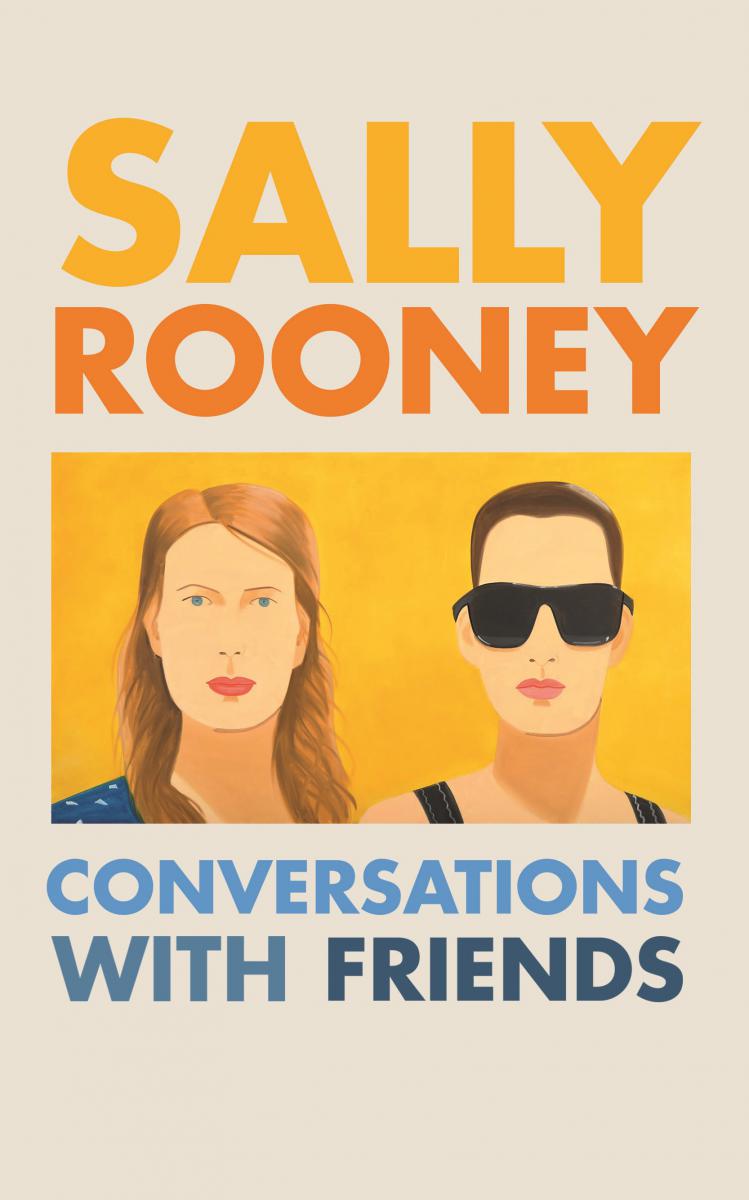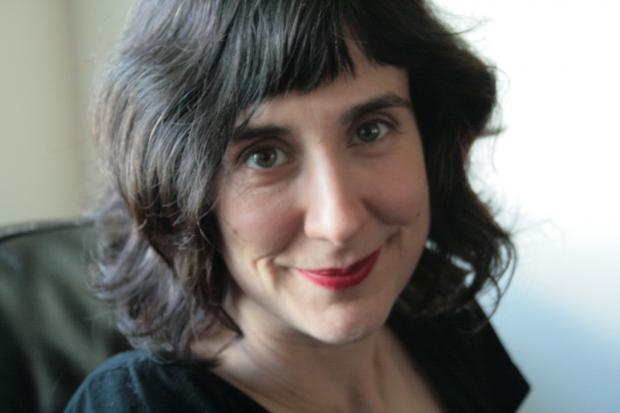Love is a bourgeois construct
In her note in the review copy of Sally Rooney’s acclaimed novel Conversations With Friends, publisher Mitzi Angel is ostentatious in her praise for the young Irish writer and her characters: Rooney writes, says Angel, “for the Snapchat generation”. Hers is a “phenomenal talent” – and Conversations With Friends can easily be discussed in the same breath other literary-coming-of-age novels such as the young Amis’s Rachel Papers or Jay McInerney’s Bright Lights, Big City.
This may be true, but it also feels unfair to burden Rooney with voice-of-a-generation tag. Conversations With Friends is more than an announcement of arrival. It manages to be simultaneously tightly controlled and brimming with feeling, a tautness that lends a sincerity to characters and most of all to Frances, the heroine.
Frances is a Trinity College Dublin English student, aware of her own intelligence and slightly scared of it. Along with her best friend and former lover Bobbi, she writes and performs poetry – Bobbi the performer, Frances the poet. This suits Frances’ view of the world very well – she is the awkward, quiet one, Bobbi the gregarious, beautiful one. Frances does acknowledge that men find her attractive, but only because they think her more quiescent.
Along the way, they meet Melissa and Nick – Melissa a photojournalist, Nick a moderately successful actor – a couple about 10 years their senior and apparently infinitely more sophisticated (which begs the question why they are so keen to hang out with a couple of undergrads.)
Inevitably, Nick and Frances have an affair of sorts. Nick, it turns out, is deeply sad, with a history of serious mental health issues, a stalled career and a wife who has slept with other people on more than one occasion. Frances, in spite of herself, is flattered by the attention of the older, wealthier man.
Wealth, or perceived wealth, emerges over and over in Conversations With Friends. Early on, Frances tells us that she never wants to have a job – in spite of her current internship at a literary agency. She has read somewhere that if all the money in the world was distributed equally, everyone would have $16,000 a year, and she sees “no reason, political or financial, ever to make more than that.”
This stance Frances attributes to her Marxist/communist leanings, but it is a manifestation of much deeper tensions: Frances is aware that what makes her remarkable also makes her vulnerable. Being noticed, being admired, can leave one open to being hurt.

Early in the novel, Frances describes how she fantasised that “I was smarter than all my teachers, smarter than any other student who had been in the school before, a genius hidden among normal people.” In her teens, she develops an online relationship with an American grad student in his mid 20s. He tells her she has “the brain of a physicist”. She tells him her intelligence leaves her feeling isolated and lonely in school. He, naturally, sends her a picture of his genitals (“zoomed right in on the erect penis, as if for medical examination”). She feels guilty and deletes her online profile. ‘I told no one, I had no one to tell”.
This brief episode is over in a paragraph, but addresses a crucial question. Why does a young woman’s desire to be noticed, acknowledged and admired end in humiliation? The same problem is manifested much later in the book, when Frances manages to sell a short story to a literary magazine for 800 euros (that fee for an unsolicited story by an unknown writer perhaps the only point in the book where one is asked to truly suspend disbelief). Her triumph and recognition as an author – as well as a moment of financial self sufficiency – are immediately undermined by an argument with Bobbi, who (correctly) sees a little too much of herself, or Frances’ perception of her, in the published piece. Even Frances’ physical desire for Nick, finding its expression in overwhelming sex and broody fantasy, is cut down by the casual cruelty of human biology.
Tied up amongst all this is class, entitlement and privilege. Frances perceives herself as poor – though she does live rent free in a Dublin flat owned by her uncle. Bobbi is not poor. Nick and Melissa are of an order of bourgeois comfort that seems alien to both – owning a large house in affluent Monkstown and able to dedicate themselves entirely to creative pursuits – Nick’s average acting and Melissa’s OK photoessays. Part of Frances’ attraction to Nick is his reassuringly expensive presence (“Nick wore nice clothes...clothes I suspected were expensive...The pockets were heavy with his personal items”). Nick’s money allows him to inhabit the world – even in spite of his mental fragility – in a way Frances cannot yet. She is dependent on allowances paid on alternate months by her divorced parents. When her alcholic father (perhaps the only “Irish novel” trope in the book) goes AWOL, she finds herself at first attempting to survive on loose change she finds around the house before eventually accepting cash from Nick.
But even affluent Nick and Melissa are reminded of their place in the pecking order. They invite Bobbi and Frances to stay with them in France – but the summer house does not belong to them: it belongs to Valerie, who is older and wealthier and therefore able to dispense cruelty or kindness to her guests as she pleases. Her arrival sends the normally louche Melissa into a nervous fit of domesticity. It is Valerie who submits Frances’ story to a literary magazine, without even asking the author’s permission first.
The rich act with enviable impunity, like classical gods. Perhaps in response, Frances finds herself drawn to Christianity, or at least its promised ethereality, an escape from physical and mental desire that also informs Frances’ declared communism. But that escape is never quite delivered by either creed, mostly because in spite of herself, Frances is unwilling to give up her desire, her ambition, and we are left an ending that is suitably unsatisfying.
Conversations With Friends is not really anything to do with the blink-and-miss-it Snapchat generation, but rather the world of Twitter and Facebook, where conversations and opinions can be endlessly pored over, analysed, even criticised, and where everything is simultaneously utterly sincere and utterly ironic. In an interview with Dublin’s Guts Magazine, Rooney commented “I do like the absurd communist humour on Twitter, though sometimes I wonder if the absurdities of capitalism are in fact too grim to be amusing. Still, life is a hard thing to be sincere about, so I think it's better to be funny right up until the point you're ready to be sincere.”
This is something of a false dichotomy when it comes to Rooney’s debut novel. In spite of the sparse, style, Rooney is capable of laugh-out-loud deadpan (“You suffer, she said. Everybody suffers. Ah, Bobbi said. Profound”; “I sat in bed in the morning writing poetry, hitting the return key whenever I wanted to.”). But above all, this is a book about, and by, a woman who admirably refuses to wear her intellect or her ambition lightly – a characteristic expected of the aformentioned McInerneys, Amises and their heirs, but still remarkable in a young female debutante novelist.






